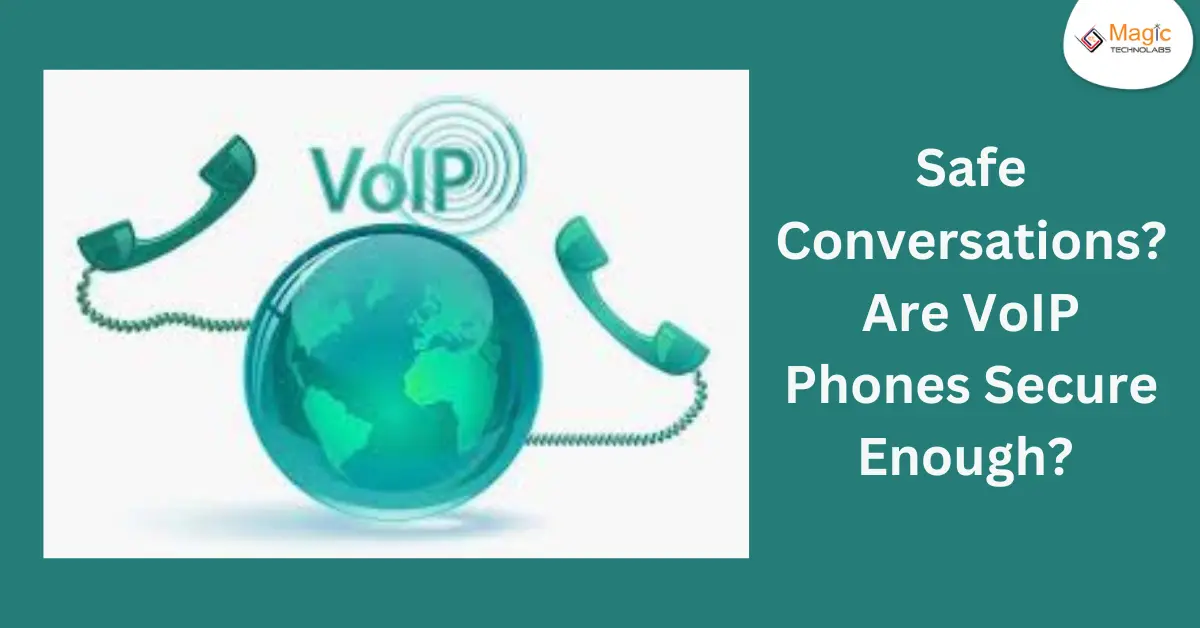In today's digital age, communication is everything. Businesses and individuals alike rely on VoIP (Voice over Internet Protocol) for clear, convenient calls. But with convenience comes a question – are VoIP phones secure enough for sensitive conversations? Let's delve into the world of VoIP security, exploring potential risks and best practices to keep your conversations safe.
Understanding VoIP Security Risks
VoIP technology offers numerous benefits, but it's not immune to security threats. Here are some potential risks to consider:
Interception: Just like any data transmitted over the internet, VoIP calls can be intercepted if not properly secured. Hackers might exploit vulnerabilities to eavesdrop on conversations.
Data Breaches: Data breaches at VoIP service providers can expose user information, including call logs and recordings.
Malware & Phishing: Malicious software or phishing attacks can compromise your VoIP system, allowing unauthorized access to calls and data.
Unencrypted Calls: Not all VoIP calls are encrypted by default. Unencrypted calls are like postcards – anyone can potentially read them (or listen in, in this case).
Securing Your VoIP Conversations
While these risks might sound alarming, there are steps you can take to mitigate them and ensure secure communication:
Encryption is Key: Look for a VoIP provider that offers end-to-end encryption. This scrambles your calls, making them unintelligible to anyone intercepting them.
Strong Passwords & Multi-Factor Authentication: Use strong passwords and enable multi-factor authentication for added security to your VoIP accounts.
Keep Software Updated: Regularly update your VoIP software and devices to patch any security vulnerabilities that might be discovered.
Beware of Public Wi-Fi: Avoid using public Wi-Fi for sensitive VoIP calls, as these networks are inherently less secure. Opt for secure, private connections.
Be Wary of Phishing Attacks: Be cautious of unsolicited emails or calls claiming to be from your VoIP provider. Don't click on suspicious links or share sensitive information.
Additional Security Considerations
Here are some further tips for businesses using VoIP:
Security Training: Train your employees on VoIP security best practices to avoid falling victim to phishing attempts or malware.
Access Controls: Implement access controls to restrict unauthorized users from accessing your VoIP system.
Regular Security Audits: Conduct regular security audits to identify and address any potential vulnerabilities within your VoIP infrastructure.
The Future of Secure VoIP
VoIP technology continues to evolve, and security remains paramount. As VoIP providers prioritize robust encryption and user-friendly security features, businesses and individuals alike can benefit from the convenience and clarity of VoIP calls with greater peace of mind.
By implementing these best practices and staying informed about potential risks, you can leverage the power of VoIP communication while ensuring your conversations remain safe and secure.
















